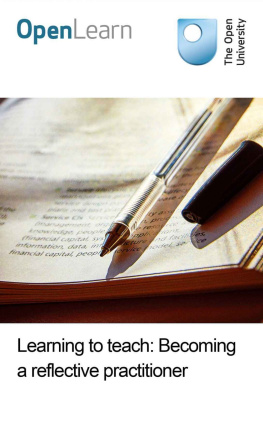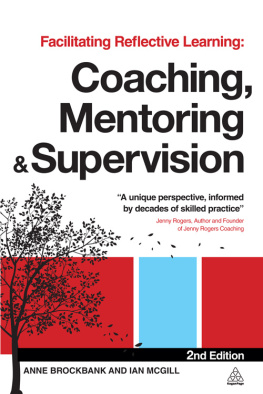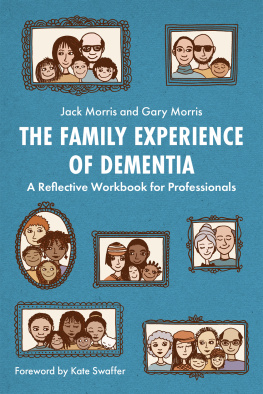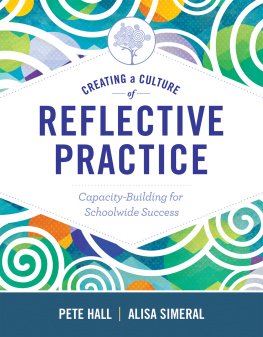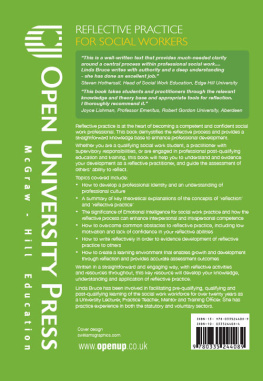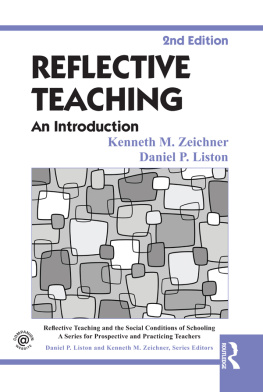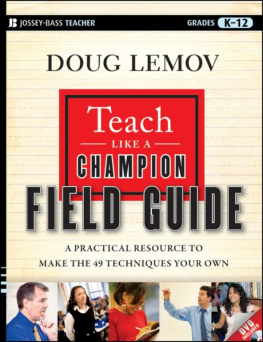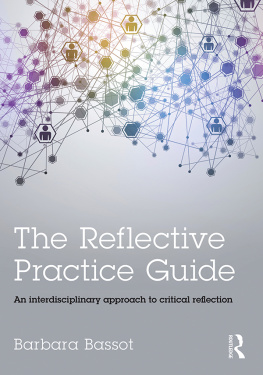Learning to teach: Becoming a reflective practitioner
Here you can read online Learning to teach: Becoming a reflective practitioner full text of the book (entire story) in english for free. Download pdf and epub, get meaning, cover and reviews about this ebook. year: 2016, publisher: The Open University, genre: Religion. Description of the work, (preface) as well as reviews are available. Best literature library LitArk.com created for fans of good reading and offers a wide selection of genres:
Romance novel
Science fiction
Adventure
Detective
Science
History
Home and family
Prose
Art
Politics
Computer
Non-fiction
Religion
Business
Children
Humor
Choose a favorite category and find really read worthwhile books. Enjoy immersion in the world of imagination, feel the emotions of the characters or learn something new for yourself, make an fascinating discovery.
Learning to teach: Becoming a reflective practitioner: summary, description and annotation
We offer to read an annotation, description, summary or preface (depends on what the author of the book "Learning to teach: Becoming a reflective practitioner" wrote himself). If you haven't found the necessary information about the book — write in the comments, we will try to find it.
Unknown: author's other books
Who wrote Learning to teach: Becoming a reflective practitioner? Find out the surname, the name of the author of the book and a list of all author's works by series.
Learning to teach: Becoming a reflective practitioner — read online for free the complete book (whole text) full work
Below is the text of the book, divided by pages. System saving the place of the last page read, allows you to conveniently read the book "Learning to teach: Becoming a reflective practitioner" online for free, without having to search again every time where you left off. Put a bookmark, and you can go to the page where you finished reading at any time.
Font size:
Interval:
Bookmark:
About this free course
This version of the content may include video, images and interactive content that may not be optimised for your device.
You can experience this free course as it was originally designed on OpenLearn, the home of free learning from The Open University
www.open.edu/openlearn/education/learning-teach-becoming-reflective-practitioner/content-section-0
There youll also be able to track your progress via your activity record, which you can use to demonstrate your learning.
Copyright 2017 The Open University
Intellectual property
Unless otherwise stated, this resource is released under the terms of the Creative Commons Licence v4.0 http://creativecommons.org/licenses/by-nc-sa/4.0/deed.en_GB. Within that The Open University interprets this licence in the following way: www.open.edu/openlearn/about-openlearn/frequently-asked-questions-on-openlearn. Copyright and rights falling outside the terms of the Creative Commons Licence are retained or controlled by The Open University. Please read the full text before using any of the content.
We believe the primary barrier to accessing high-quality educational experiences is cost, which is why we aim to publish as much free content as possible under an open licence. If it proves difficult to release content under our preferred Creative Commons licence (e.g. because we cant afford or gain the clearances or find suitable alternatives), we will still release the materials for free under a personal end-user licence.
This is because the learning experience will always be the same high quality offering and that should always be seen as positive even if at times the licensing is different to Creative Commons.
When using the content you must attribute us (The Open University) (the OU) and any identified author in accordance with the terms of the Creative Commons Licence.
The Acknowledgements section is used to list, amongst other things, third party (Proprietary), licensed content which is not subject to Creative Commons licensing. Proprietary content must be used (retained) intact and in context to the content at all times.
The Acknowledgements section is also used to bring to your attention any other Special Restrictions which may apply to the content. For example there may be times when the Creative Commons Non-Commercial Sharealike licence does not apply to any of the content even if owned by us (The Open University). In these instances, unless stated otherwise, the content may be used for personal and non-commercial use.
We have also identified as Proprietary other material included in the content which is not subject to Creative Commons Licence. These are OU logos, trading names and may extend to certain photographic and video images and sound recordings and any other material as may be brought to your attention.
Unauthorised use of any of the content may constitute a breach of the terms and conditions and/or intellectual property laws.
We reserve the right to alter, amend or bring to an end any terms and conditions provided here without notice.
All rights falling outside the terms of the Creative Commons licence are retained or controlled by The Open University.
Head of Intellectual Property, The Open University
978-1-4730-1807-5 (.kdl)
978-1-4730-1039-0 (.epub)
How often do you find yourself replaying in your head the events of the day or an incident in your life? Whether it is going through a conversation that happened to digest what has been said, thinking about sequences of events that led to a certain conclusion, or thinking about how you felt or reacted at a point in time. At this level, we are quite used to the idea of reflecting on our own actions.
Reflective practice is a term strongly associated with learning in professional contexts such as teaching, nursing or social work and can be thought of in a number of ways. It can be described as a learning tool, something that is going to help you to synthesise, explain, make sense of and ultimately develop meaning from, your experiences.
It can be considered to be a professional competence, as reflected in the standards you are expected to achieve by the end of your Initial Teacher Education (ITE) course. Finally, it might be thought of as a type of dialogue or prose, a particular type of conversation or a writing style that captures your personal views and relates them to evidence you have collected from elsewhere.
Before considering the nature of reflection and the theoretical ideas that underpin it, it is worth considering why reflective practice is considered so important both within ITE and within career long learning in education.
Reflection point: Think of a situation where, through reflecting on what has happened, you have acted differently or changed your initial view of a situation.
This OpenLearn course is part of a collection of Open University short courses for teachers and student teachers.
Please help us improve our free learning! We would love to know what you think of our free Open University OpenLearn ebooks. This short survey will only take 10 minutes to complete, but your feedback is invaluable to us. Thank you. https://www.surveymonkey.co.uk/r/Amazon2017ebook
After studying this course, you should be able to:
- understand the role of reflective practice in ITE (Initial Teacher Education)
- recognise some models of reflective practice
- identify the difference between reflection, analysis and description
- understand the difficulties in ensuring that reflection leads to learning and begin to develop some strategies to ensure reflection supports development.
Learning from your experience in schools is central to your ITE and your subsequent professional development. During your course, your school placements will develop your practical skills and knowledge and provide you with opportunities to demonstrate your learning. Time in school is likely to make up the vast majority of your course time so how do you make sure you are learning effectively while you are there? To help you understand how to learn effectively, it is worthwhile considering some of the complexities of workplace learning in order to frame our discussion of how reflective practice can support you.
Working in any specific educational context is likely to highlight differences of opinion. These may be the result of differences between:
- members of staff about what strategies they employ or the beliefs they hold
- the pedagogy of different teachers and the pedagogy promoted by your ITE course leaders
- ideas you have read about in journals or books and what you see happening in the school
- your own beliefs, views and assumptions and those of other people.
These differences in perspectives are a normal occurrence in school-based workplace learning. How you deal with these situations is important. They can be the stimulus for learning if you ask questions such as:
- Why have these differences occurred?
- Is it to do with the personalities involved and their beliefs and values?
- Is it due to the particular context in which the contradictions have occurred?
- Have they arisen because of your own assumptions, beliefs and values?
ITE requires you to synthesise these perspectives, make links between them and make informed, reasoned decisions about what to take forward into your own practice and what not to.
Font size:
Interval:
Bookmark:
Similar books «Learning to teach: Becoming a reflective practitioner»
Look at similar books to Learning to teach: Becoming a reflective practitioner. We have selected literature similar in name and meaning in the hope of providing readers with more options to find new, interesting, not yet read works.
Discussion, reviews of the book Learning to teach: Becoming a reflective practitioner and just readers' own opinions. Leave your comments, write what you think about the work, its meaning or the main characters. Specify what exactly you liked and what you didn't like, and why you think so.

